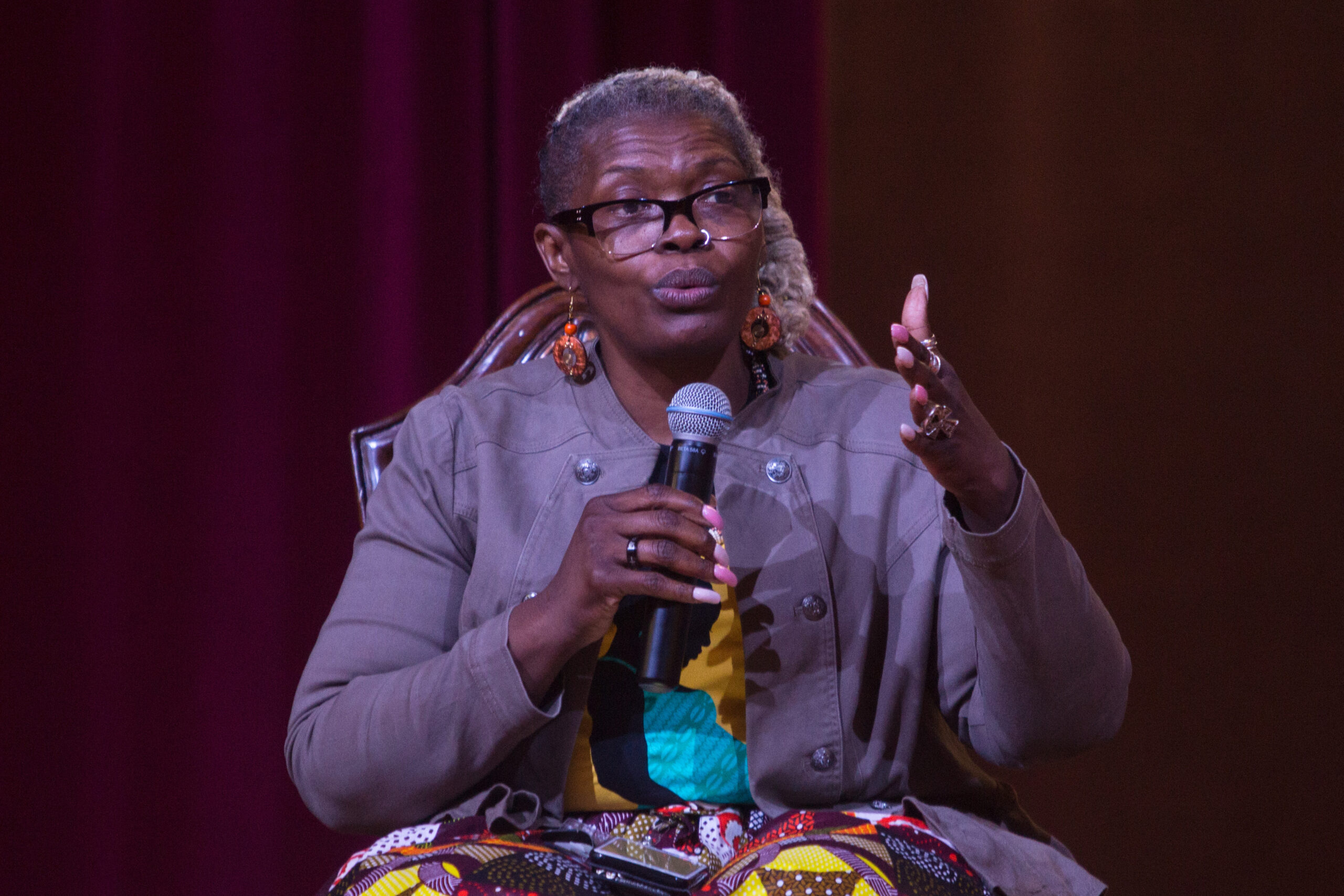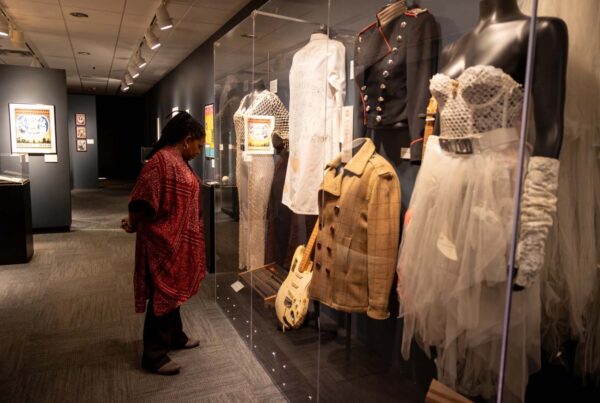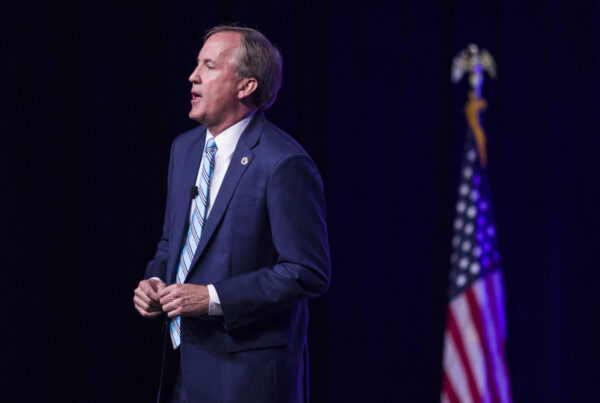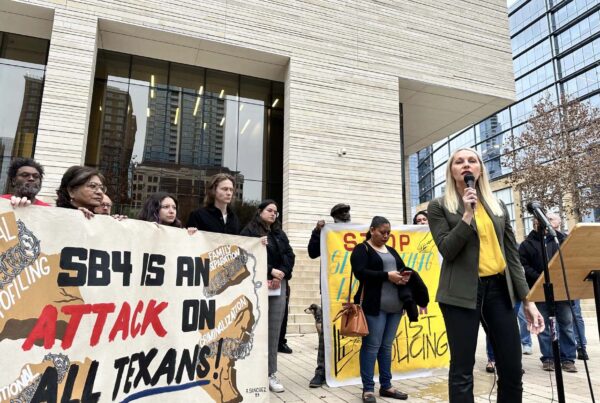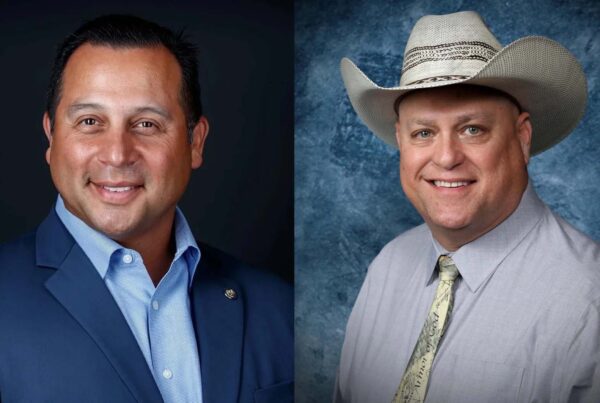Black women have some of the highest maternal mortality rates in the country. Advocates say marginalized women and gender expansive individuals have also long been disproportionately vulnerable to health issues like HIV.
Addressing those concerns has long been the focus of the Afiya Center in Dallas. The center is an organization led by Black women focused on tackling the state’s reproductive justice crisis. That mission has expanded since the U.S. Supreme Court effectively overturned Roe v. Wade with the Dobbs decision in 2022.
Marsha Jones, executive director of the Afiya Center, spoke with Texas Standard on what reproductive health looks like for people living in a post-Roe Texas. Listen to the interview above or read the transcript below.
This transcript has been edited lightly for clarity:
Texas Standard: Could you tell us about the name of the center, “Afiya Center”? Where does the name come from?
Marsha Jones: “Afiya” itself is a Swahili name. The name basically means “women’s health and wellness.”
Our symbol is also an Adinkra symbol and it stands for transforming or transitioning — “sesa wo suban.” The goal here was to transform or transition women’s health or their relationship with their sexual and reproductive health.
Sounds like you might be describing the mission of the center, no?
Pretty much.
Well, what does a successful day at the center look like for you and your colleagues?
So every day at the Afiya Center is not a crisis. Every day is a day that we started out with a very specific thing in mind. We were able to get it done.
So like today was a successful day. We’re planning for our Texas Black Womxn Reproductive Justice Summit that’s coming up in March. All of our deadlines were met. We are in budget. So when we can start something that we planned for the day without a crisis coming in and derailing us a little bit, that’s a successful day.
I want to loop back on your reference to reproductive justice. How do you define that?
It’s just a human right to control our sexuality, our gender and our work and our reproduction.
Of course it has changed a little bit from when the founding mothers started it, but then we’ve had to expand it because of the world and the way we see it, and the way gender is identified has expanded.
The core of it is that women or folk who are birthing have the right to have children, have the right to not have children and have the right to nurture the children that we have.
You mentioned that not every day is a day in which someone comes in with a crisis. What sort of crisis would you be talking about?
So, a crisis for us could be several people at the same time calling who are about to be evicted and needing money. A crisis can be someone who needs an abortion and doesn’t know where to go, but they’ve always heard about the Afiya Center and they are not that connected with what’s going on legally in Texas and so there’s a lot that we have to do. We can’t do it, but there are processes in which it can be done. That’s a crisis.
A crisis can be someone calling us and saying, “I had sex last night. I didn’t use a condom. Is there anywhere that I can go right now to get PrEP or to get an HIV test?” So our work doesn’t just center on maternal health or abortion or whatever. It can be anything across the board.
Texas laws have changed, certainly around abortion. I know that there have been a lot of abortion providers who have been concerned, and a lot of doctors, who have been concerned that any advice on abortion might be construed by the attorney general as a violation of Texas law. I’m curious if your organization has had any issues dealing with law enforcement over this.
We’ve not had any issues dealing with law enforcement. We have attorneys that we work with who we are literally checking with almost day to day what we can and cannot say.
Even though we are a strong advocacy group and we’re willing to go and toe the line for the people that we serve, we are also very clear how much we can serve if we’re not available to serve them.
I know that there has been some research trying to determine to what extent this is having on the effect of further widening the disparities of treatment and services for people of color, especially when it comes to maternal and infant health. What are you seeing and what is your sense of that?
There was an article a couple of weeks ago on the high numbers of pregnancies that had to go full term as a direct result of rape where abortions could not happen in states like Texas.
Pregnancies in the worst conditions have increased and they’re increasing with people who are the most vulnerable or the most marginalized folk. We don’t have the hard documentation or the hard data yet, but we’re waiting for that data to come.
» GET MORE NEWS FROM AROUND THE STATE: Sign up for Texas Standard’s weekly newsletters
Why do you continue in this work? What keeps you going?
Because we are a reproductive justice organization, we’ve never had the luxury of just serving in that one capacity. We’ve never had the luxury of just serving people who are seeking abortions, even though that was a part of our work.
We still have to serve people who are living with HIV, who are newly diagnosed, who are not connected with services. We still have to be at the Texas state legislative session every other year, fighting for things like expanding Medicaid – not just Medicaid for pregnant folks. We have laws in Texas now that deny people the right to full bodily autonomy.
It doesn’t mean that those laws will have to be there forever. We still fight to make sure that folks can have access to the things that they need.
If you found the reporting above valuable, please consider making a donation to support it here. Your gift helps pay for everything you find on texasstandard.org and KUT.org. Thanks for donating today.


